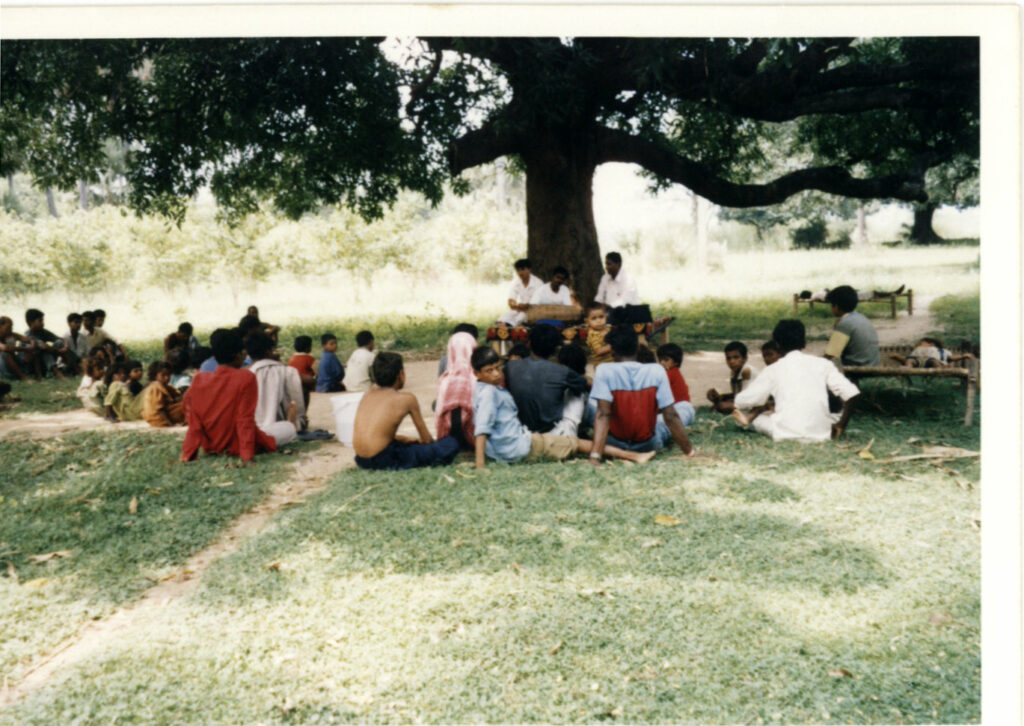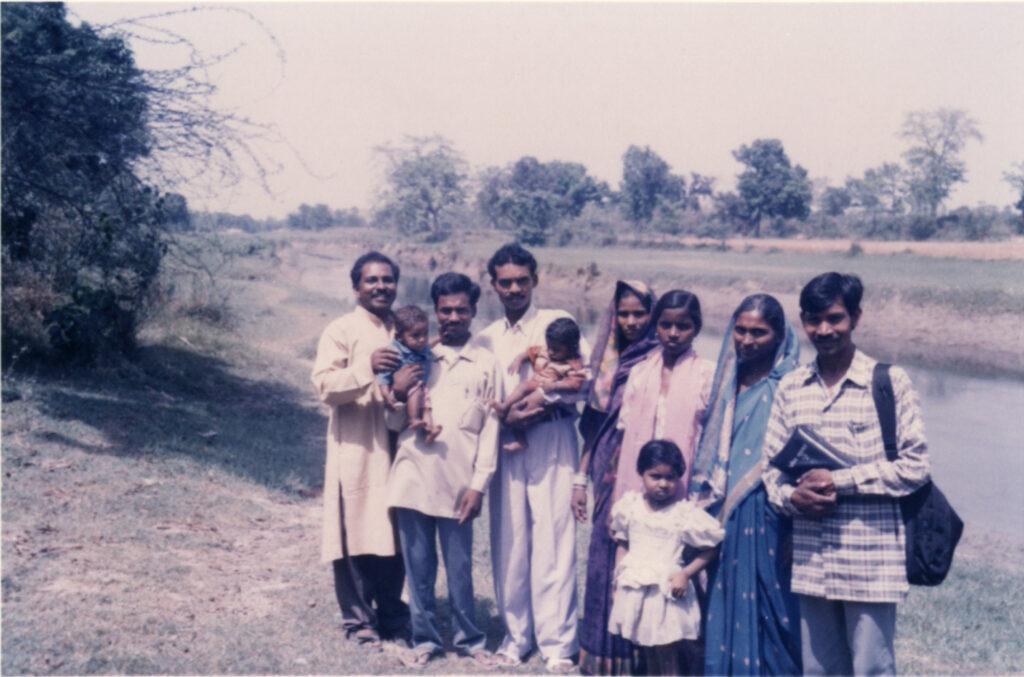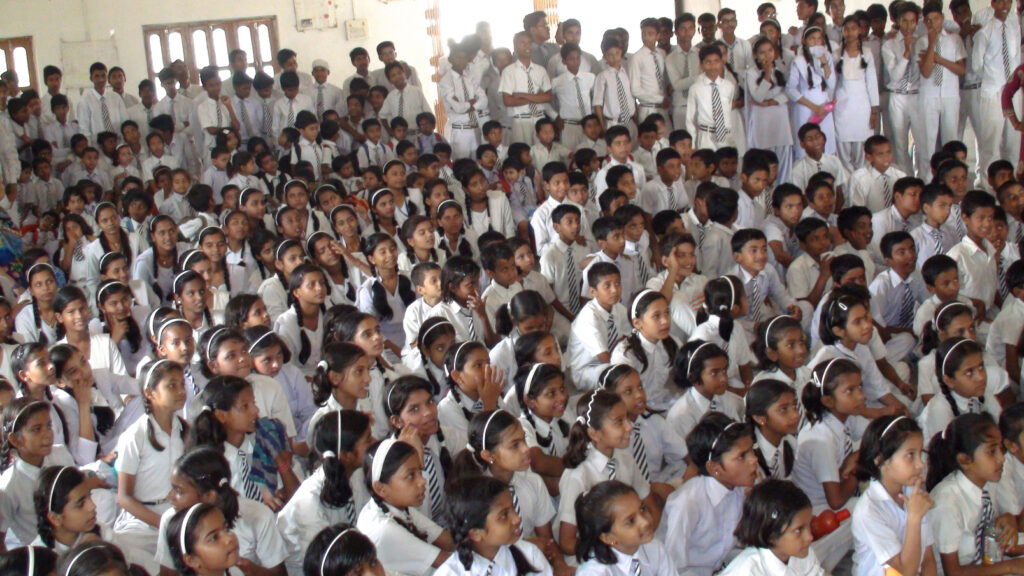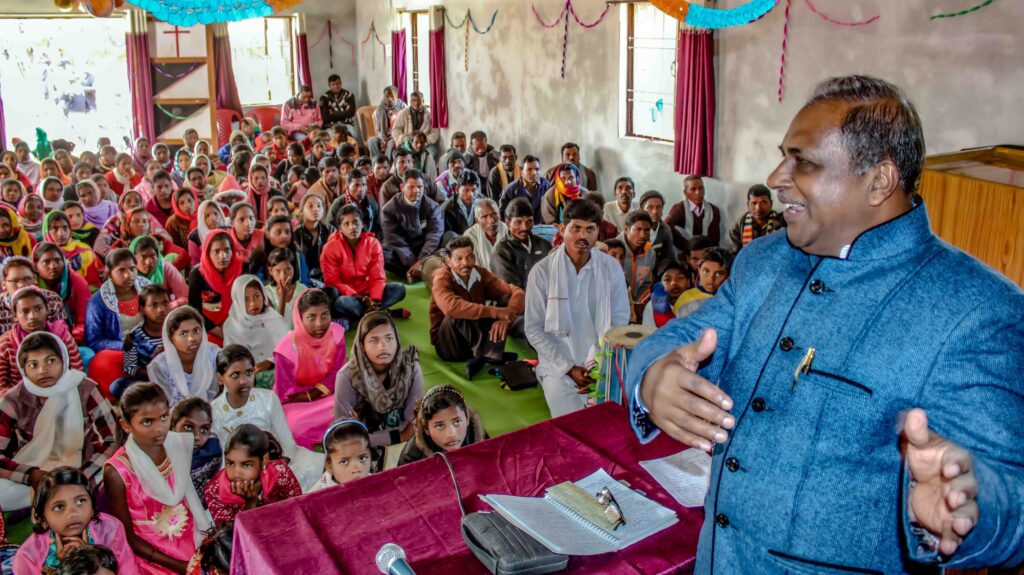The call to be a servent of God
Because Abraham’s poor parents could not afford to support his higher education, one of his relatives invited him to Bangalore. He boarded the train intending to obtain a bachelor’s degree there. But nothing went as planned. Instead, he fell into a state of severe depression that forced him to attempt to end his life by lying in front of a moving train.
However, a mysterious voice drove his attention to read from the Bible while he was composing a suicide note. As he obeyed the voice, Ecclesiastes chapter 7 verses 16-18 fell open before his eyes, which stated, “Why destroy yourself and why die before your time? Don’t be a fool. It is good to grasp and not to remove your hands. One who fears God will avoid all extremes.” This incredible divine intervention encouraged Abraham to pray, cry, and repent for his utter stupidity.
Later, he was able to attain a job in the Bangalore Postal Department. And then after six months, in a vision, the Lord spoke to him again and commissioned him for the Lord’s work. Abraham did not want to be an evangelist, but the Lord gave him the strength to obey His command through another vision.
Great move from Bangalore to Bihar
Young Abraham informed his Pastor about the vision and burden, and he directed him to the Bangalore office of Operation Mobilization, where he became a member of the team OM. There the Lord trained and used Abraham in numerous ways, and he was given more opportunities to study God’s Word systematically. Before the Lord commissioned him to preach in North India, Abraham also had the opportunity to work with FMPB (Friends Missionary Prayer Band).
Abraham arrived in Bihar as a young bachelor without researching any facts about this State, but with a vision from the Lord for the unreached.
Ten years of waiting and burden to harvest the first fruit
Abraham traveled for three days and 1650 miles by train to the far edge of North India. He was subjected to several hardships and trials when he first arrived in the small Bihar town (Siwan) in 1984, all the way from Bangalore. When he arrived in Bihar, Abraham was still in his twenties. For him, the new place was challenging. Their clothing, language, and eating habits were completely foreign to him, and their living spaces were filthy. Bicycles and rickshaws had a major road presence. Garbage covered the streets, while cows and piglets roamed freely, feasting on garbage piles, and causing traffic congestion. Harming a cow, which was regarded as ‘sacred,’ would result in swift punishment according to local Hindu norms. The streets were congested with pedestrians and people riding bicycle-pulled rickshaws, which had become Bihar’s icon. The number of vehicles available for transportation was quite restricted. The primary means of transportation were carts drawn by ponies and oxen. He saw the faces of malnourished people everywhere he looked. But wherever he tried to share the Gospel he was treated spitefully.

Abraham began his outreach by distributing Gospel booklets in and around Mairwa, a village near the Siwan area. He traveled everywhere on foot. Bihar is known for its caste hierarchy, and Christians are still considered to be among the lowest. As a result, people looked down on Abraham and treated him with disrespect. Abraham was repeatedly denied drinking water because being a Christian, he was considered a lower caste in their eyes, and once had to escape for his life after requesting a glass of water. Throughout his ministry in North India, he was subjected to humiliation and death traps. Pages are insufficient to contain all his painful experiences. However, many of those who came to attack him later accepted the Lord in thier lives.

Devdas, a Good Samaritan, joined Abraham and followed him on his mission visits to the remote communities. Abraham gathered his followers in small huts, with only a kerosene lamp as a source of light. He would spend the nights in smelly barns where animals and buffalos were kept. The nights appeared longer for him because electricity was unknown and unheard of, but he never felt lonely because one million mosquitoes kept him company all night!

Such was the opposition that Abraham even considered quitting the ministry many times but continued in obedience to His call as the Lord finally opened doors for him. All of this, however, came at a cost. He sweated for ten years merely to see the first fruit as three souls were added to the church. Ever since missionaries landed in Bihar, it was notoriously referred to as the ‘Graveyard of Missions’. Winning three souls in ten years in Bihar was the equivalent of winning three thousand souls in another state. Several missionaries, both foreign and native, worked for years without yielding any results. This is how difficult evangelism was in this part of the world in the 1970s and 1980s.
Education as a tool to share the love of Christ

In India, there has long been a close relationship between educational institutions and the church. Schools can support indirect evangelism, as it allows people to communicate Christ’s love while also serving the children and community around them. Bihar has consistently ranked as one of the poorest Indian states, with the lowest literacy rates. Bihar’s literacy rate is significantly lower than the national average. Taking all these factors into account, Abraham started the first-ever English Medium School in Siwan, where the ministry’s head office was located. This institution drew a lot of interest from individuals of all faiths in the area, including rivals of the Gospel. And this school proved to be the most effective way for him to make relationships and continue with his ministry. The school provided resources, staff, space, contacts, vehicles, and much other support to the church planting ministry. It was through this school that Emmanuel Fellowship Churches and hundreds of House Churches were grown out. As a result, thousands of people in Siwan heard the Gospel and accepted Jesus into their lives. A town that was formerly known for all kinds of crimes and trouble became a hub of learning, community transformation, and Gospel sharing. And this led to the establishment of six more schools giving a further boost to the ministry.
Present ministry & Gratefulness
In 2011, Abraham moved from Siwan to Patna, the capital city of the State of Bihar which helped to expand the ministry from Bihar to more States like West Bengal, Jharkhand, Chhattisgarh, Uttar Pradesh, Madya Pradesh, Odisha, and Ladak. Today, more than 450 full-time staff are engaged in various departments of the ministry with 98 Central Churches, 200+ pastors, hundreds of House Churches, two orphanages, five mission schools, one Bible College with 17 branches in four states, etc. Through every difficulty and adversity, the one who chose him has been his guide, guardian, and faithful to each of His promises.











